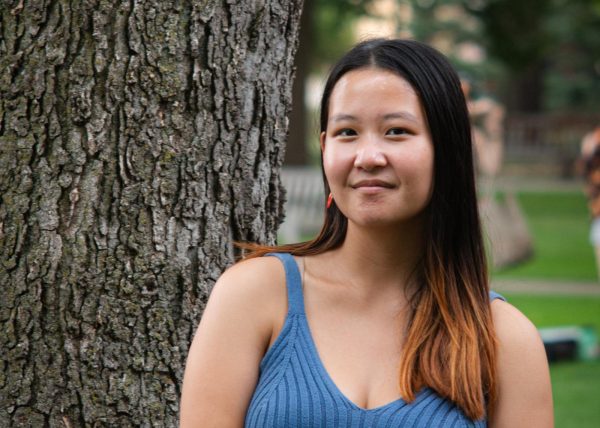Last week, my fellow Managing Editor and former co-Editor-in- Chief Zak Yudhishthu published an opinion article titled “Amidst the internet culture war, students bear the burden.” The article discusses how colleges like Macalester have been thrust into the media as the scope of the news expands and adapts at a rapid rate. Not only that, but once stories expand past local news, the way in which they are shared and interpreted changes drastically.
While this article isn’t necessarily about free speech, I want to highlight how drastically the changes in the flow of information have altered our lives and will continue to do so, and how the effects we are seeing are likely to continue and compound in the future.
Like Zak, I share in the concern for students who are not being permitted to grow, develop and share ideas without fear of intense backlash, not only from their peers, but from the national and international community at large. This is an issue that I feel is isolated to the generation of individuals who were raised during or after the time when personal devices, particularly cell phones and laptops, were made much more common, along with the proliferation of social media platforms.
Something I’ve seen floating around recently is this idea of “media literacy”: essentially, being able to understand what is and isn’t acceptable to post online and what aspects of your life you’re willing to make essentially the entire world privy to. I remember as a child being warned about all of the potential dangers of being online, and how anything I said about myself could be looked at five, 10 or 20 years later when I was applying to colleges or to jobs, an experience that I think a lot of my peers share.
Yet, despite these internet values being instilled in us at such a young age, powers out of our control have largely been the ones who have adapted these platforms for their own use. Gone are the times where teenagers were able to have an “awkward phase” or develop in ways that weren’t particularly attractive or amiable. In a time where there is pressure to not only publicize but augment every aspect of your life, there is practically no room for “visible mistakes.”
With a few clicks of a button, I, and anyone else with internet literacy, can have years worth of information about a person at my fingertips. Despite the fact that platforms like Facebook or Instagram have so-called barriers barring those from under 13 from joining, these are largely ineffective, and the advent of family and mommy bloggers who post all about their underage children anyway largely circumvents this.
Not only this, but the recent period of time during the COVID-19 pandemic where the internet and social media have shaped the way in which people interact with one another (because they quite literally could not interact with one another in person), has had massive effects. I’ve heard some of my fellow seniors commenting on how members of the younger class years didn’t have the chance to learn certain skills that we did in high school, and I have heard some members of the Macalester community have gone as far to call incoming first-years “overgrown highschool sophomores” or similarly derogatory terms because of the years of schooling, interaction and development that they have missed out on.
While I don’t necessarily agree with these ideas, I certainly see that while expectations for younger generations are rising, the publicization of our day-to-day lives hasn’t left room for people to “cook”. Older generations love to ramble on about mistakes that they made in their past, and tell younger people that “it takes time to figure things out,” or “mistakes are how you grow,” but the second that people are removed from personal connection with the person making the mistake, perspectives often shift.
Personally, I don’t think that the decisions I made as a 13-year-old or the beliefs I held when I was eight are defining of my character or who I am now, and I believe that everyone deserves to have an atmosphere where they can feel comfortable making decisions that are reflective of who they are right now. While it might not be possible to prevent your identity from being connected with something you have said or done, I agree that context is essential, and the 24-hour news cycle and pattern of remote reporting on events the journalist can be hundreds of miles removed from hugely contribute to this issue.
Furthermore, with information circulating so rapidly, there isn’t room for people to not know about something. Engaging in an action or making a statement about a topic that you aren’t particularly educated on can cause immense amounts of backlash, even if the information that impacted these perspectives only came to light hours or days ago.
I also believe that it’s easy to forget what it’s like to be in the proverbial “hot seat,” to be at a period of time in your life where you aren’t certain what the expectations are, and you’re expected somehow to be an adult while never having had the experiences of not being a child. When people look at others, it can be difficult not to see them from where you are now, and not where you were when you were their age, or in their role.
How can we ask people to stand up for what they believe in and engage with difficult subjects when we’ve created an environment that doesn’t tolerate the smallest imperfection?







